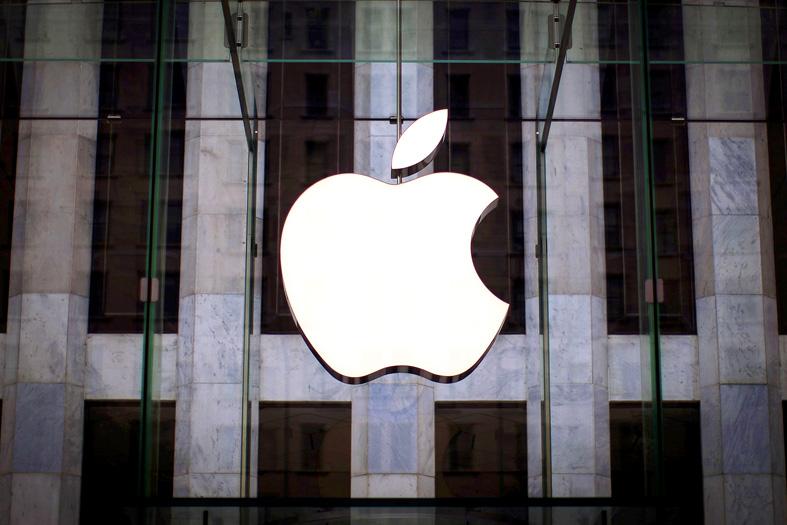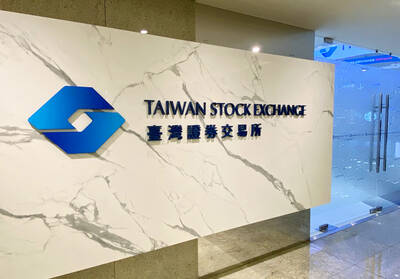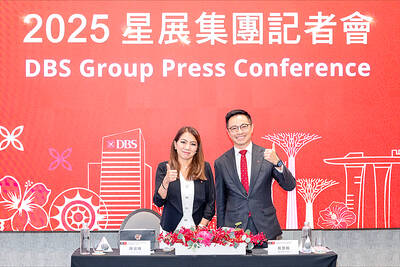Apple Inc has agreed to pay US$113 million to settle litigation with more than 30 US states over its slowdown in performance of older iPhones to manage battery power.
The latest “batterygate” settlement would divide the settlement among California and 33 other states, a statement by California Attorney General Xavier Becerra said.
The settlement resolves complaints that the tech giant made misrepresentations about iPhone batteries and software updates that throttled processing performance to manage insufficient battery power, Becerra said.

Photo: Reuters
“Apple withheld information about their batteries that slowed down iPhone performance, all while passing it off as an update,” he said.
“This type of behavior hurts the pockets of consumers and limits their ability to make informed purchases,” he said.
“Today’s settlement ensures consumers will have access to the information they need to make a well-informed decision when purchasing and using Apple products,” he said.
The settlement resolves complaints about Apple’s iPhone 6 and 7 generation phones, which according to the states’ complaint were susceptible to performance loss.
In the court documents, the iPhone maker said that it agreed to the payout “solely for the purposes of settlement,” without any admission of wrongdoing.
Earlier this year, Apple agreed to pay up to US$500 million to settle a class-action lawsuit over the same issue.
In December 2017, Apple said that its iOS software was tweaked to slow the performance of older iPhones whose battery life was deteriorating to prevent handsets from spontaneously shutting down.
Critics accused Apple of surreptitiously forcing users to buy phones sooner than necessary, and the outcry prompted Apple to upgrade its software and offer steep discounts on battery replacements.
Separately, Apple on Wednesday said that it would cut in half its App Store fees for small developers, moving in the face of lawsuits over its 30 percent commission and increased antitrust scrutiny of the online marketplace.
The company said that developers who make less than US$1 million from selling apps on its store would see Apple’s revenue bite cut to 15 percent.
However, the announcement would have no effect on developers that generate huge amounts of cash from wildly popular apps from the likes of music giant Spotify Technology SA and video game sensation Epic Games Inc.
Apple said that the “vast majority” of developers would benefit from its program launched to give companies a boost during the pandemic, which would become effective on Jan. 1.
Apple said that its marketplace has about 1.8 million apps, most of them free.
The App Store generated about US$519 billion in commerce last year, with about 85 percent flowing to the developers, the company said.
The Coalition for App Fairness, a newly formed association that includes Spotify, Epic Games and several other app developers, expressed disappointment with Apple’s move.
“Developers want a level playing field from Apple, NOT a symbolic gesture,” the coalition wrote on Twitter.
“Apple’s announcement today is a calculated move and ignores fundamental flaws with the App Store, specifically,” it wrote.
The group said that the US$1 million threshold is arbitrary and that Apple’s policies are still hurting many app developers.

Taiwan Semiconductor Manufacturing Co (TSMC, 台積電) secured a record 70.2 percent share of the global foundry business in the second quarter, up from 67.6 percent the previous quarter, and continued widening its lead over second-placed Samsung Electronics Co, TrendForce Corp (集邦科技) said on Monday. TSMC posted US$30.24 billion in sales in the April-to-June period, up 18.5 percent from the previous quarter, driven by major smartphone customers entering their ramp-up cycle and robust demand for artificial intelligence chips, laptops and PCs, which boosted wafer shipments and average selling prices, TrendForce said in a report. Samsung’s sales also grew in the second quarter, up

LIMITED IMPACT: Investor confidence was likely sustained by its relatively small exposure to the Chinese market, as only less advanced chips are made in Nanjing Taiwan Semiconductor Manufacturing Co (TSMC, 台積電) saw its stock price close steady yesterday in a sign that the loss of the validated end user (VEU) status for its Nanjing, China, fab should have a mild impact on the world’s biggest contract chipmaker financially and technologically. Media reports about the waiver loss sent TSMC down 1.29 percent during the early trading session yesterday, but the stock soon regained strength and ended at NT$1,160, unchanged from Tuesday. Investors’ confidence in TSMC was likely built on its relatively small exposure to the Chinese market, as Chinese customers contributed about 9 percent to TSMC’s revenue last

Taiwan and Japan will kick off a series of cross border listings of exchange-traded funds (ETFs) this month, a milestone for the internationalization of the local ETF market, the Taiwan Stock Exchange (TWSE) said Wednesday. In a statement, the TWSE said the cross border ETF listings between Taiwan and Japan are expected to boost the local capital market’s visibility internationally and serve as a key for Taiwan becoming an asset management hub in the region. An ETF, a pooled investment security that is traded like an individual stock, can be tracked from the price of a single stock to a large and

Despite global geopolitical uncertainties and macroeconomic volatility, DBS Bank Taiwan (星展台灣) yesterday reported that its first-half revenue rose 10 percent year-on-year to a record NT$16.5 billion (US$537.8 million), while net profit surged 65 percent to an unprecedented NT$4.4 billion. The nation’s largest foreign bank made the announcement on the second anniversary of its integration with Citibank Taiwan Ltd’s (花旗台灣) consumer banking business. “Taiwan is a key market for DBS. Over the years, we have consistently demonstrated our commitment to deepening our presence in Taiwan, not only via continued investment to support franchise growth, but also through a series of bolt-on acquisitions,” DBS